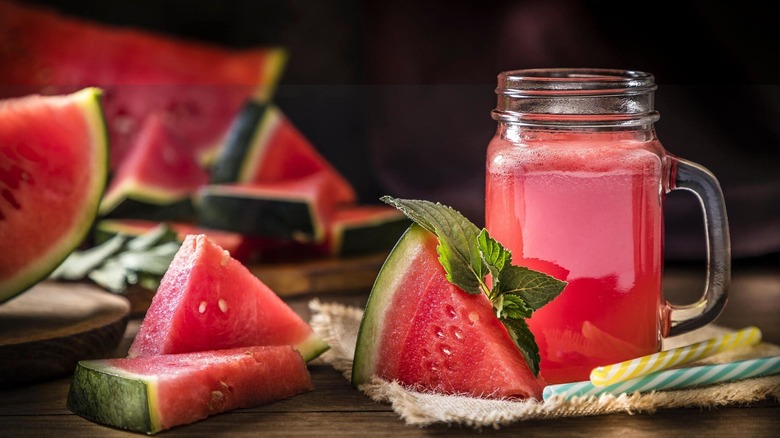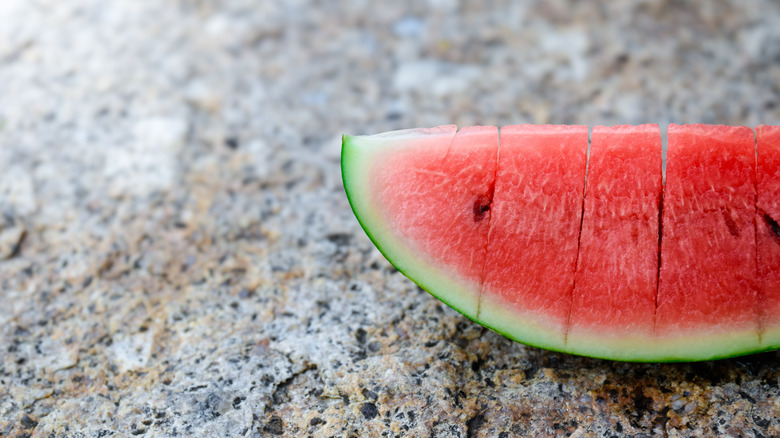How Long Does Fresh Watermelon Juice Stay Good For?
Watermelon juice is the ultimate refreshing summer beverage and one of the easiest juices to make. You get all the delicious sweet, sour, and bitter notes in a single hydrating sip. No need for a fancy juicer here! Simply toss some fresh cubed watermelon into a blender, and voilà — fresh watermelon juice. That said, it has a limited shelf life. All fresh, unpasteurized juices are best consumed within 24 hours, but can be stored in the refrigerator for up to three days. It's also important not to leave fresh watermelon juice sitting out at room temperature for longer than 2 hours. However, you can further extend its shelf life by freezing it for up to 16 months.
To store watermelon juice in the refrigerator, place it in an airtight container, such as a lidded glass jar, and fill it to the top to reduce the chances of oxidation. If opting for the freezer, you have a few options. For starters, you can pour the freshly made juice into ice cube trays to create convenient frozen cubes you can thaw and enjoy year-round. Alternatively, you can blend the frozen cubes to make a delicious slushie. Another option is to pour the juice into popsicle molds and place them in the freezer, perfect for satisfying those cold treat cravings. If you freeze watermelon juice in a glass jar, be sure to leave room for it to expand without shattering the glass.
Precautions to take before juicing and signs of spoilage
Homemade, unpasteurized juices, such as fresh watermelon juice, are at risk of harmful bacteria being introduced during preparation. This bacteria poses a health risk, especially to the elderly and those who are pregnant or have compromised immune systems.
To ensure watermelon juice stays fresh, tasty, and free of bacteria, take a few simple precautions. Start with a ripe, seedless watermelon that makes a deep, hollow sound when tapped. Scrub the exterior of the watermelon with a produce brush before rinsing it under running water, then dry the outside of the rind with a clean cloth or paper towel. Thoroughly wash your hands in warm, soapy water for at least 20 seconds before slicing the fruit. Using a clean knife, be sure to cut away any spoiled or bruised areas of the watermelon before preparing it for juicing.
How do you know when watermelon juice should be discarded? Like with most food items, if the juice has an odd smell, discoloration, or signs of mold — toss it. The risk of food poisoning is too great with fresh homemade juices to take any chance at all. Food borne illness can cause severe symptoms and complications, so it's always better to err on the side of caution. Properly handling and storing your watermelon juice is key in keeping it safe and enjoyable.

